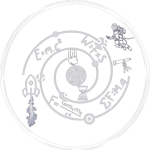
“5 Mind-Blowing Science Facts You Didn’t Know About AI, Quantum Physics, and More!”
Explore the fascinating world of science with us! Today, we’re diving into topics that span from cutting-edge technology to the mysteries of the universe. From artificial intelligence and quantum mechanics to ancient civilizations and space exploration, there’s something for everyone. Keep your mind sharp and curious as we uncover these lesser-known facts!
AI- MACHINE LEARNINGHISTORICALCOSMOSMEDICALQUANTUM
Anand Maity
3/9/20251 min read



Science is all around us—whether it’s in the way our smartphones work or how our brains process information. Today, we’re taking a deep dive into some of the most intriguing topics in science, from AI and quantum physics to historical discoveries and future technologies.
1. AI Can Learn From Its Mistakes (And We Should Be Scared)
Did you know that AI systems can now learn from their mistakes? This isn’t just about improving performance—it’s a sign of how much they’re growing. However, the scariest part? They might eventually surpass human intelligence.
2. Quantum Physics Is weirder than You Think (And We’re Running Out of Time)
Imagine a world where objects can exist in multiple places at once. That’s quantum superposition, and scientists are racing to harness it before it’s too late. The future of computing might depend on it.
3. The Oldest Human Art Could Rewrite History (And It’s Over 40,000 Years Old)
Archaeologists have discovered ancient cave paintings that could change our understanding of human evolution. These masterpieces suggest that humans were capable of advanced thinking much earlier than previously believed.
4. We’re on the Verge of a Medical Breakthrough That Could Eradicate Cancer (Maybe)
Researchers are testing a new treatment called CAR-T therapy, which targets cancer cells directly. Early results show promise, but it’s still in the experimental stage. Stay tuned for more updates!
5. The Universe Might Have a Twin (And It’s Not What You Think)
According to some theories, our universe could have a twin—another universe with identical properties but different outcomes. This “mirror universe” might hold the key to understanding why our own universe behaves the way it does.
Conclusion:
Science is a vast and mysterious world, and there’s always something new to discover. Whether it’s breakthroughs in technology or ancient mysteries, we’re constantly learning and growing. What topic would YOU like us to explore next? Drop your thoughts below, and don’t forget to share this post with anyone who loves science! 🌟
